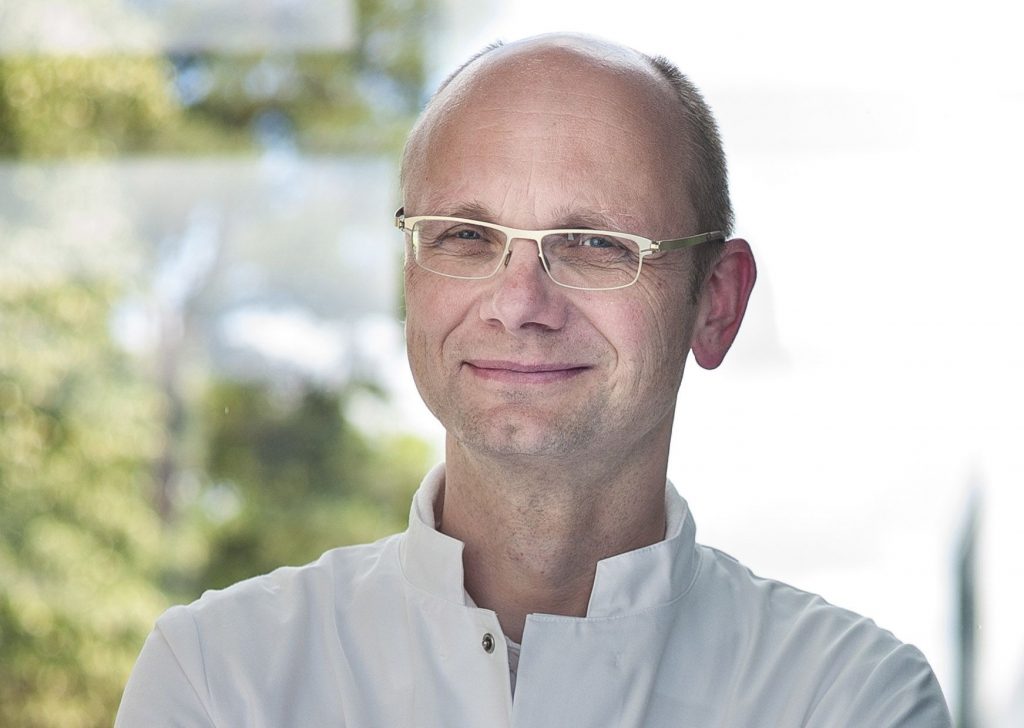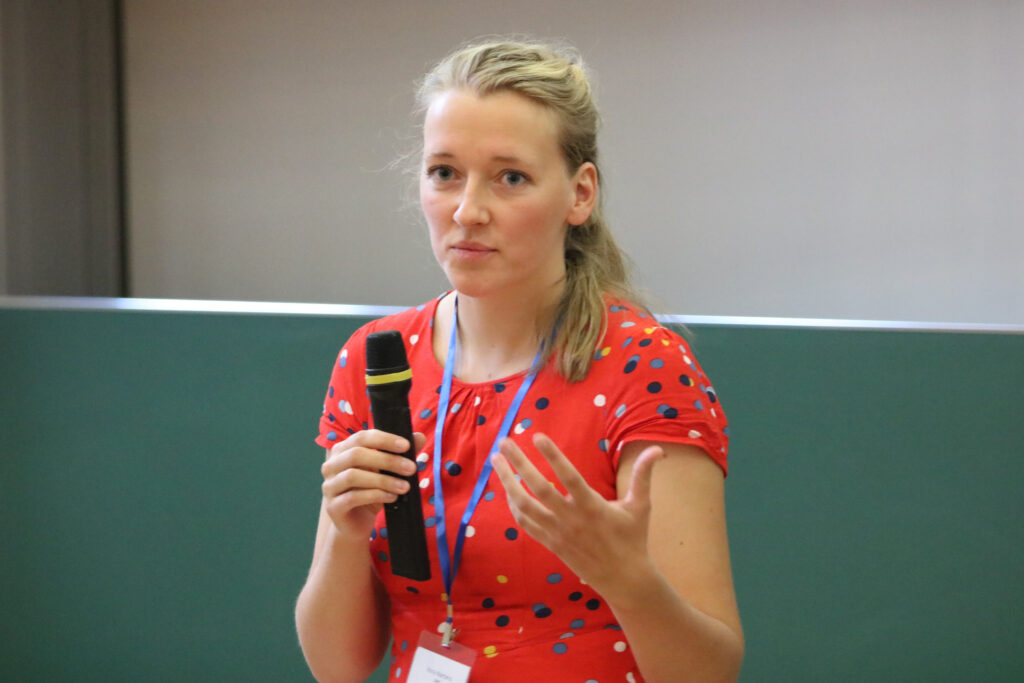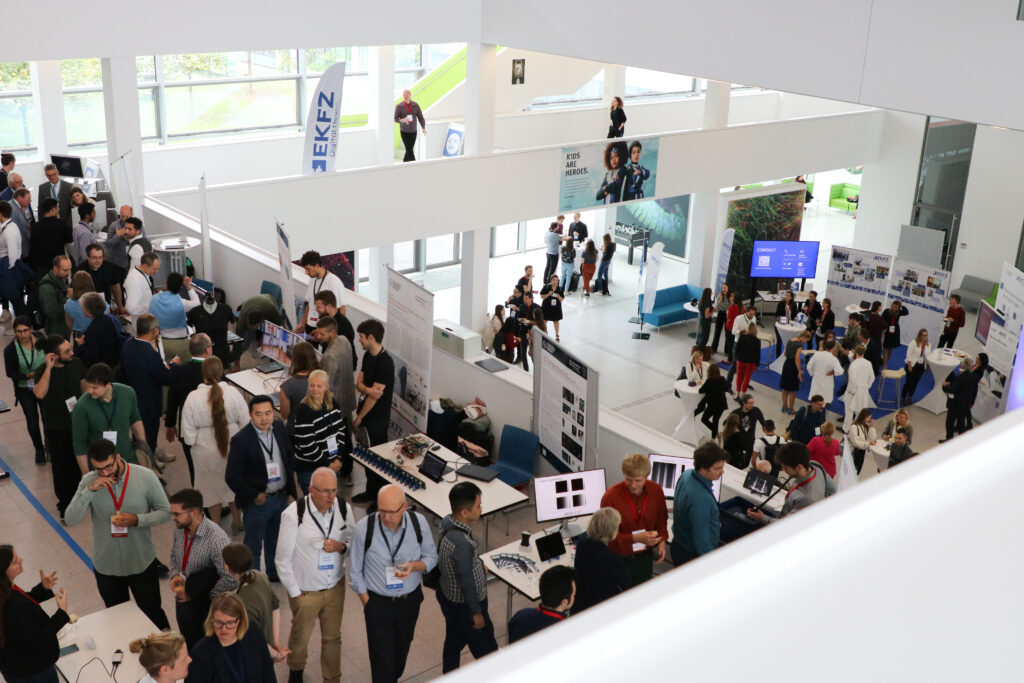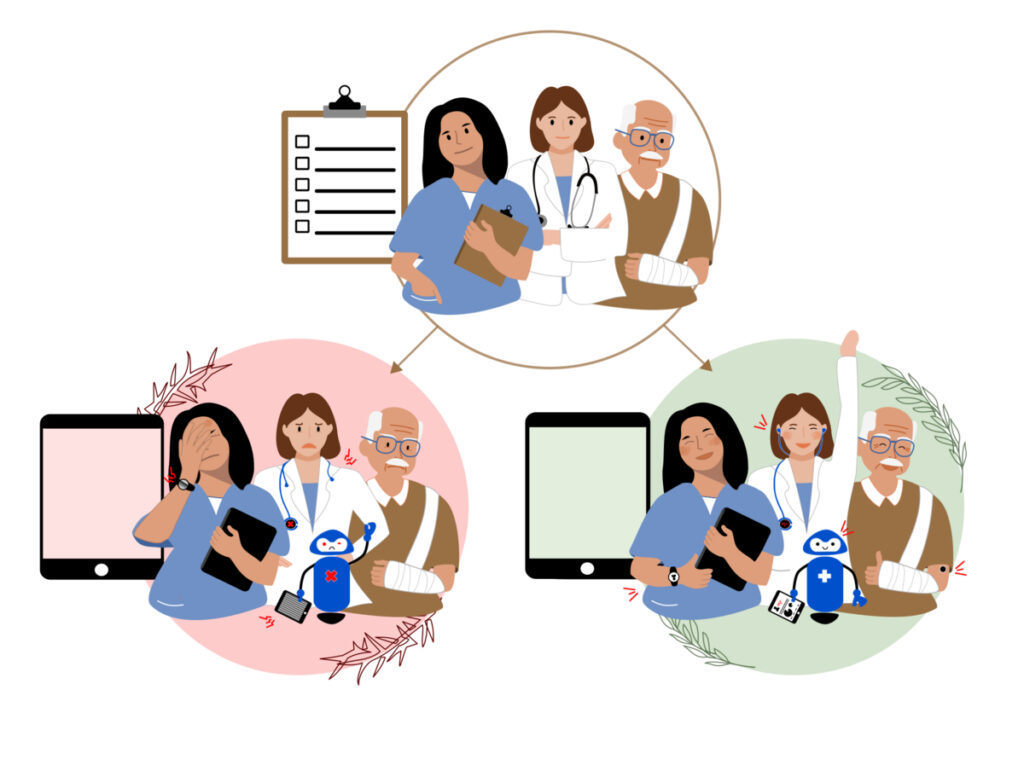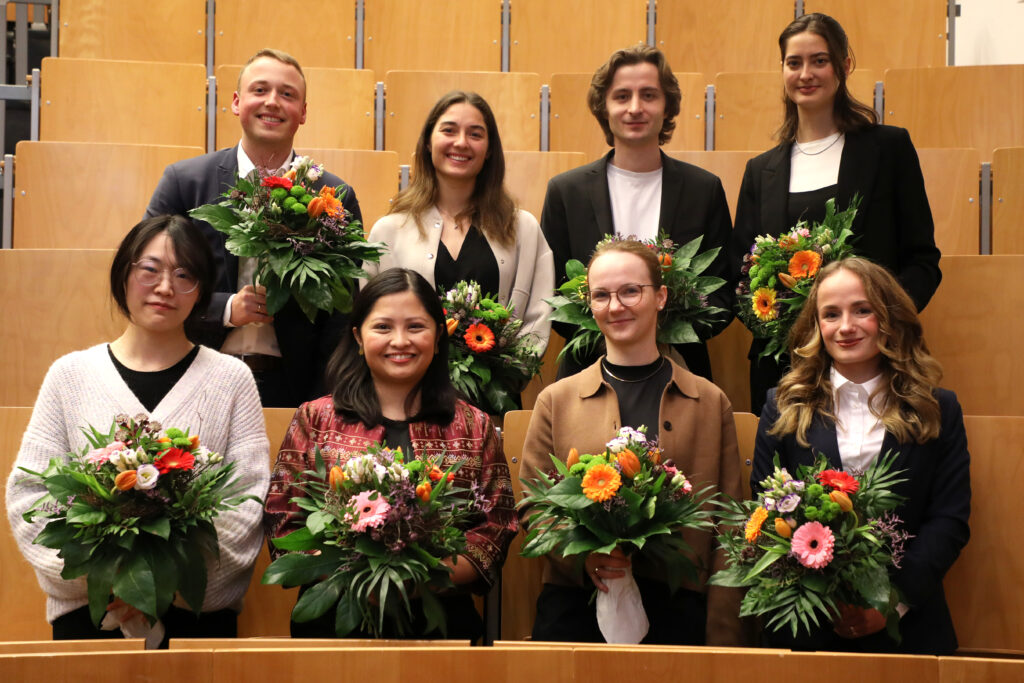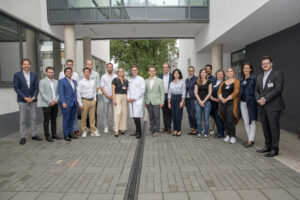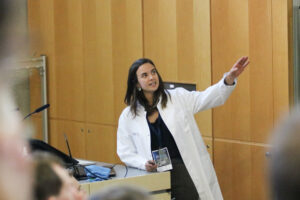EKFZ for Digital Health: 20 million euros approved for second funding period
After successful interim evaluation, the Else Kröner Fresenius Foundation (EKFS) approves the second funding period for the Dresden Research Center to establish innovative training structures, promote interdisciplinary cooperation and expand a unique research landscape.
Continuing the successful path
Four years after the establishment of the Else Kröner Fresenius Center for Digital Health in 2019 at the TU Dresden and the Dresden University Hospital Carl Gustav Carus, the EKFS Foundation Board and a panel of external experts were on site for an interim review. The very positive vote of the experts led to the foundation’s decision. The EKFS approves a further 20 million euros for another five years.
Many minds – one team
This year, the interim review took place at the same day as the EKFZ | InnoDays. The center’s annual event focused on the newly appointed professors, the dedicated project teams and the young scientists. All Else Kröner Professors occupy a unique research topic in the German research landscape in the field of digital health research and attract new, international talent to the Saxon state capital. Stephen Gilbert, Jakob N. Kather and Ivan Minev provided informative insights into their research areas and their visions for the coming years: from regulatory challenges for software and AI in medical devices, to the benefits of AI in clinical practice, to bioelectronics, to nanotechnology-enabled medical systems. In addition, Dr. Nora Martens, Clinician Scientist, explained how the EKFZ for Digital Health supports and trains young scientists from the undergraduate to the postdoc phase:
Innovative research projects on the campus of the Dresden University Medical Center
Interdisciplinary Innovation Projects (IIPs) are the EKFZ’s most successful tool for promoting interdisciplinary interactions and productive research to meet medical needs. 32 IIPs have benefited from this support to date. The special feature of the IIPs is that an experienced clinician and a high-tech specialist always work together on one topic. This successful funding instrument is a starting point from which many innovative ideas have emerged that later became third-party-funded large projects. For the interim review, numerous IIP teams presented their demonstrators and prototypes. The interactive exhibition gave visitors, reviewers and representatives of the ECFS the opportunity to experience and test various exhibits live. They gained a comprehensive insight into medical technology innovations and the latest trends in digital health.


